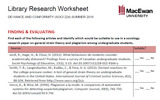
Overview: Worksheet used for a second-year sociology class on researching deviance and conformity. Students are asked to find and evaluate academic sources and review APA citation style.

Overview: Worksheet used for a second-year sociology class on researching deviance and conformity. Students are asked to find and evaluate academic sources and review APA citation style.
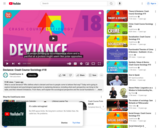
What is social deviance? Who defines what is deviant and how to people come to behave that way? Today we’re going to explore biological and psychological approaches to explaining deviance, including what each perspective can bring to the table, and their inherent limitations. From there, we’ll explain the sociological perspective and the social foundations of deviance.
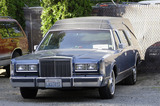
Define deviance, and explain the nature of deviant behaviorDifferentiate between methods of social control

Short Description:
An open pedagogy project of student-authored essays to help readers develop a better understanding of the ways that narrative media like movies and television represent issues of difference, power, and discrimination in American culture, both today and in the past.
Long Description:
An open pedagogy project of student-authored essays to help readers, particularly high school and college students interested in movies and television, develop a better understanding of the ways that narrative media like movies and television represent issues of difference, power, and discrimination in American culture, both today and in the past. Authors are students in English 223: Difference, Power, and Discrimination in Film course at Linn-Benton Community College in Albany, Oregon taught by Dr. Stephen Rust.
Word Count: 150923
(Note: This resource's metadata has been created automatically by reformatting and/or combining the information that the author initially provided as part of a bulk import process.)
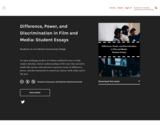
Short Description:
An open pedagogy project of student-authored essays to help readers develop a better understanding of the ways that narrative media like movies and television represent issues of difference, power, and discrimination in American culture, both today and in the past.
Long Description:
An open pedagogy project of student-authored essays to help readers, particularly high school and college students interested in movies and television, develop a better understanding of the ways that narrative media like movies and television represent issues of difference, power, and discrimination in American culture, both today and in the past. Authors are students in English 223: Difference, Power, and Discrimination in Film course at Linn-Benton Community College in Albany, Oregon taught by Dr. Stephen Rust.
Word Count: 165456
ISBN: 978-1-63635-079-0
(Note: This resource's metadata has been created automatically by reformatting and/or combining the information that the author initially provided as part of a bulk import process.)
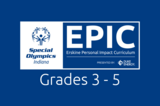
In this lesson, students will learn about their classmates and teacher in a way that builds community and cohesiveness in the learning environment. Using the book, Playing for Change, students will discuss differences in the characters who were accepted and those who were not. In pulling these elements out of the plot, students will then identify differences in themselves that possibly relate to others in the classroom.
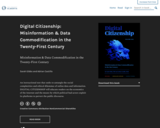
Misinformation & Data Commodification in the Twenty-First Century
Short Description:
An instructional text that seeks to untangle the social complexities and ethical dilemmas of online data and information. DIGITAL CITIZENSHIP will educate readers on the economics of the Internet and the means by which political bad actors exploit its platforms to pervert the public discourse.
Word Count: 15176
ISBN: 978-1-55195-464-6
(Note: This resource's metadata has been created automatically by reformatting and/or combining the information that the author initially provided as part of a bulk import process.)
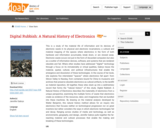
This is a study of the material life of information and its devices; of electronic waste in its physical and electronic incarnations; a cultural and material mapping of the spaces where electronics in the form of both hardware and information accumulate, break down, or are stowed away. Electronic waste occurs not just in the form of discarded computers but also as a scatter of information devices, software, and systems that are rendered obsolete and fail. Where other studies have addressed ""digital"" technology through a focus on its immateriality or virtual qualities, Gabrys traces the material, spatial, cultural, and political infrastructures that enable the emergence and dissolution of these technologies. In the course of her book, she explores five interrelated ""spaces"" where electronics fall apart: from Silicon Valley to Nasdaq, from containers bound for China to museums and archives that preserve obsolete electronics as cultural artifacts, to the landfill as material repository. All together, these sites stack up into a sedimentary record that forms the ""natural history"" of this study. Digital Rubbish: A Natural History of Electronics describes the materiality of electronics from a unique perspective, examining the multiple forms of waste that electronics create as evidence of the resources, labor, and imaginaries that are bundled into these machines. By drawing on the material analysis developed by Walter Benjamin, this natural history method allows for an inquiry into electronics that focuses neither on technological progression nor on great inventors but rather considers the ways in which electronic technologies fail and decay. Ranging across studies of media and technology, as well as environments, geography, and design, Jennifer Gabrys pulls together the far-reaching material and cultural processes that enable the making and breaking of these technologies.

This course is an introduction to the cross-cultural study of biomedical ethics, examining moral foundations of the science and practice of Western biomedicine through case studies of abortion, contraception, cloning, organ transplantation and other issues. It evaluates challenges that new medical technologies pose to the practice and availability of medical services around the globe, and to cross-cultural ideas of kinship and personhood. Also discussed are critiques of the biomedical tradition from anthropological, feminist, legal, religious, and cross-cultural theorists.

Word Count: 147871
(Note: This resource's metadata has been created automatically by reformatting and/or combining the information that the author initially provided as part of a bulk import process.)

This course examines the growing importance of medicine in culture, economics and politics. It uses an historical approach to examine the changing patterns of disease, the causes of morbidity and mortality, the evolution of medical theory and practice, the development of hospitals and the medical profession, the rise of the biomedical research industry, and the ethics of health care in America.

An 8 Week Course to Develop Information Literacy Influencers
Short Description:
This course was developed as part of a grant project aimed at addressing the disinformation that contributes to extremist beliefs and the deterioration of our democracy. It is intended to help adult learners understand the complexities underlying the problem, and develop the skills needed to act as information literacy influencers in their communities.
Word Count: 8229
(Note: This resource's metadata has been created automatically by reformatting and/or combining the information that the author initially provided as part of a bulk import process.)

Modulen innehåller tre fritt tillgängliga introduktionsföreläsningar till diskursanalys på svenska. Första föreläsningen är en bred introduktion som studenten/forskaren att välja rätt typ av diskursanalys för sitt arbete, den andra föreläsningen presenterar ansatsen What's the problem represented to be? (WPR) och den tredje föreläsningen presenterar kritisk diskursanalys. Föreläsningarna får användas och spridas fritt men när detta görs ska https://www.kvantila.com/ citeras. Föreläsningarna kan ses på Youtube genom följande länk: https://www.youtube.com/@kvantitativmetod.
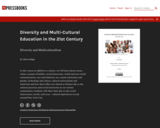
Diversity and Multiculturalism
Short Description:
In this course in addition to culture, we will learn about norms, values, systems of beliefs, social interaction, verbal and non-verbal communication, race and ethnicity, sex, sexual orientation and gender, technology and culture, cultural universalism and relativism and how these affect our shared or distinct day to day cultural practices and social interaction in our various communities. Students will share their day-to-day social interactions, travels, and cross - cultural experiences in and around New York City.
Long Description:
The fundamental knowledge of understanding culture and teaching from diverse backgrounds. Examination of the nature and function of culture, development of individual and group cultural identity, definitions and implications of diversity, and the influences of culture on learning, development, and pedagogy. This course has a required field experience component – an ethnographic survey of diverse cultures and groups in New York City.
At the end of this course, students will work on an assignment on eliminating biases, prejudice, racism, discrimination on gender, sexual, cultural, religious, disabilities, and aging. They will provide recommendations, suggestions and solutions on how to promote diversity, inclusion, equity, cross-cultural understanding and include anti – racist activities in schools and in our communities. The assignment will be based on student experiences or observations as a minority or majority living in the US. In addition, students will provide critical thinking analysis on case study scenarios on issues in cultural diversity and multi -culturalism as they relate to the individual and society.
This course has been designated as an OER / COIL / ZTC . The instructor will provide the learning materials and will collaborate with a faculty at the Institute for Cultural Studies at the Obafemi Awolowo University [OAU], Nigeria in providing additional learning resources on “living in complex societies”. A list of recommended texts have been provided for students wishing to obtain them for their personal libraries and research.
Please see the Note/Disclaimer page for book content info.
Word Count: 140711
(Note: This resource's metadata has been created automatically by reformatting and/or combining the information that the author initially provided as part of a bulk import process.)

This is a course about how research knowledge and other types of knowledge come to be actionable and influential in the world — or not. The course explores ways to make research knowledge more accessible, credible, and useful in the realm of public policy and practice, a project in which the course faculty collectively bring decades of professional experience, in both academic and non-academic roles.
The course addresses the politics of the policymaking process, the power of framing and agenda-setting, fads and paradigms in the design professions and society in general, how knowledge diffuses along knowledge and influence networks, and how varied types of knowledge (rational, craft, other) and deliberation shape decision-making and action. The course engages a number of guests to present case studies of research in use (and abuse) in varied fields, highlighting rich areas for potential research contributions, along with major conflicts in public values, political interests, ethical obligations, and more. The resulting dilemmas confront scholars, policymakers, practitioners, and others as they look to research — sometimes — for useful guidance, influence, or both.

The Human Development Index (HDI) measures overall well-being beyond economic growth, focusing on health, education, and income. Countries with low development levels use less energy, and small energy increases lead to significant HDI improvements. Energy efficiency improvements can be made without compromising quality of life, addressing environmental concerns and promoting equity.

hile higher incomes generally lead to greater life satisfaction, it's not a guarantee. People in countries with high life satisfaction tend to use more energy, which can enhance comfort and mobility. Modest increases in energy use can significantly improve life satisfaction, but there are diminishing returns at higher levels.
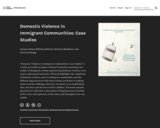
Short Description:
“Domestic Violence in Immigrant Communities: Case Studies” is a freely accessible eCampus Ontario Pressbook containing case studies of immigrant women experiencing domestic violence to be used as educational materials. The book highlights the complexity of domestic violence cases in immigrant communities and the different legal processes that these women encounter in seeking justice and the challenges they face in relation to re-establishing their own lives and the lives of their children. The book contains questions for reflection; a description of legal processes involved in DV cases, and a glossary of the terms used throughout the case studies.
Long Description:
“Domestic Violence in Immigrant Communities: Case Studies” is a freely accessible eCampus Ontario Pressbook containing case studies of immigrant women experiencing domestic violence to be used as educational materials. The contents were created by analysing closed legal case files of 15 immigrant women living in Ontario who experienced domestic violence. The comprehensive case studies that emerge from this research present domestic violence experienced by immigrant women in all its complexity, highlighting their unique vulnerability at the intersections of race, gender and immigration status. The book also highlights the different legal processes that these women encounter in seeking justice and the challenges they face in relation to re-establishing their own lives and the lives of their children. In addition to the cases, the book contains questions for reflection; a description of legal processes involved in DV cases, and a glossary of the terms used throughout the case studies. This interactive Pressbook is an ideal resource for social work and legal practitioners, including students in social service work, social work and law programs, in order to increase their understanding about the complexity of domestic violence cases in immigrant families and develop strategies for culturally informed interventions.
Word Count: 42082
(Note: This resource's metadata has been created automatically by reformatting and/or combining the information that the author initially provided as part of a bulk import process.)

This course focuses on the origins, functions, and implications of downtown management organizations (DMOs), such as business improvement districts, in a variety of national contexts including the United States, Canada, South Africa, and the United Kingdom. It critically examines how a range of urban theories provide a rationale for the establishment and design of DMOs; the evolution and transnational transfer of DMO policy; and the spatial and political externalities associated with the local proliferation of DMOs. Particular emphasis is given to the role of DMOs in securing public space.

Short Description:
This guide contains the chief sources of information to be found in government offices and institutions in the Minneapolis-St. Paul area. By following the steps outlined, a good basic history of one's house can be assembled - when it was built, who built it, who owned it, its dimensions, its cost, and materials used. A search might also lead to the discovery of changes subsequently made to the property, when these changes occurred, and what they cost. A search might even uncover the original floor plan and exterior appearance. Suggestions for additional research are provided for diligent researchers who want more information about styles, the architectural history of Minneapolis, St. Paul, and the nation, or the political and social history of the cities, the states, or their neighborhoods.
Word Count: 2899
(Note: This resource's metadata has been created automatically as part of a bulk import process by reformatting and/or combining the information that the author initially provided. As a result, there may be errors in formatting.)